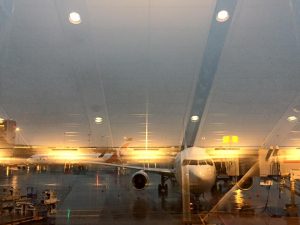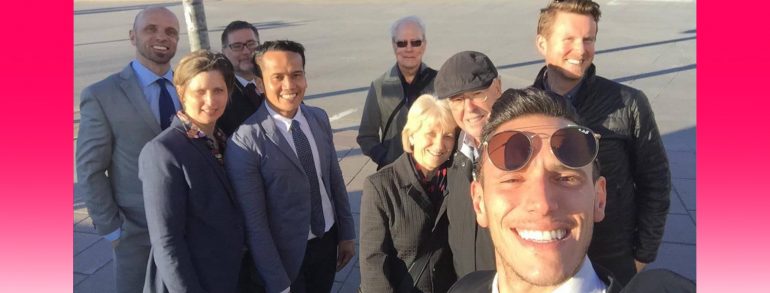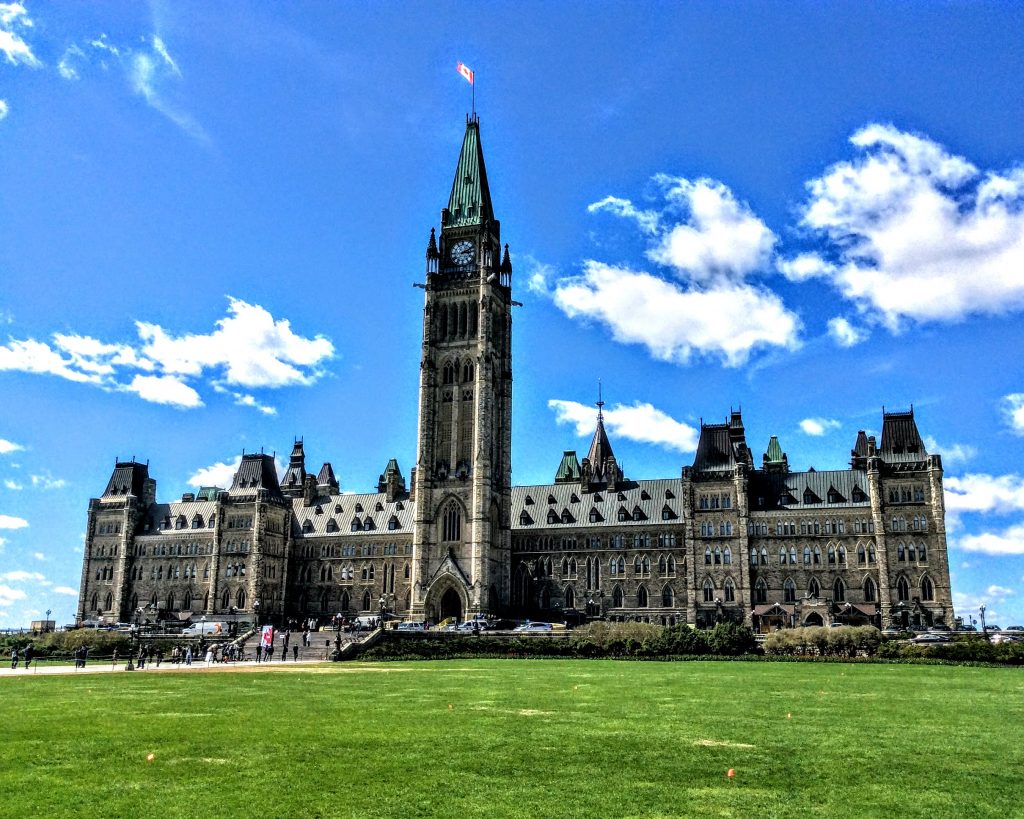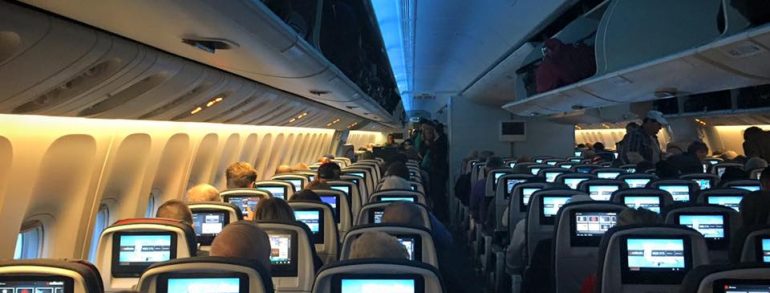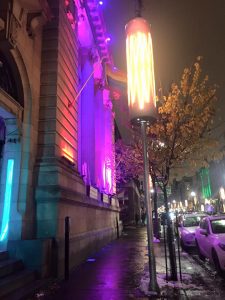
It is unfortunate that the Foundation of Hope exists. In fact, I actually wish we didn’t. I wish that people did not need refugee-supporting organizations and I look forward to the day – if ever possible – when we are able to disband and go our separate ways. However, the sad truth is that we do have to exist, and we must continue working to support other charities and sponsors in their quest to give LGBT+ Refugees a better life. Our world is seeing an unprecedented number of refugees and our LGBT+ family across the globe are still struggling for a breath of fresh air.
Today, my friends, it is ever important to ensure that we press on to make our Vision a reality: a world where LGBT+ refugees and newcomers can live safely and be themselves.
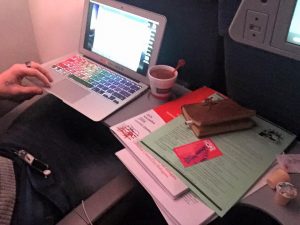
I am sitting in an airplane right now, rather exhausted and irritable, waiting impatiently for the attendants to wheel their caffeine cart to my row so I can fuel up. You see, it’s late, but I have to write. I have to somehow find a way to transform my reflections and experiences into something tangible. I spent three days last week at the Canadian Council for Refugees (CCR) Fall Consultation in Montréal on the traditional territory of the Mohawk peoples. I am feeling incredibly impacted and inspired by the consultation. I feel hopeful, and somehow conversely, I also feel hopeless.
To contextualize this consultation, “the CCR is a non-profit umbrella of more than 180 organizations across Canada committed to the rights and protections of refugees and other vulnerable migrants and to the settlement of refugees and immigrants in Canada” (CCR Handout, 2016). The CCR hosts recurring consultations, to which they invite their member organizations and other interested stakeholders, including Newcomers themselves. These consultations facilitate a coast-to-coast information exchange. This consultation in particular was titled Welcoming Diversity: At the Heart of What We Do. It comprised 450 registrants who were engaged from across Canada and FOH fit right in; we were graciously welcomed. The consultative agenda consisted of various working groups, caucuses, presentations, and workshops. I only wish I was able to attend all sessions. What a wealth of dialogue, discussion, and most importantly, action planning!
In order for you to get a sense of my experience, I will list the sessions in which FOH was present:
- Overseas Protection and Sponsorship Working Group Meeting
- Opening Plenary with keynote speaker Johannes can der Klaauw, Canada’s UNHCR representative
- Promoting Refugee Protection Internationally
- Sharing Best Partnership Practices in Building Welcoming Communities
- Current Issues in Immigration Detention
As you can imagine, after these sessions I am feeling full of shared knowledge and new information. It is truly amazing to see so many diverse people dedicated to the improvement of lives around the world, lives of unknown people, often with untold stories. In light of the election south of the border, its current sociopolitical landscape of xenophobia and racism, it felt refreshing to see so much drive for our world’s betterment. Canada has an incredible opportunity to lead by example and continue to fortify its humanitarian characteristics of vigilance and perseverance, held deeply within our national culture. If one thing was particularly thematic over these past few days, it is that Canada is doing something right. As was stated yesterday, “We need more Canada in the world.”
However, to humbly deflate my nationalist ego for a moment, we certainly have a lot of work to do. Our immigration system is not perfect and progress is often slow. I can say in confidence, though, that actions are being undertaken, voices are being heard, and flaws are being addressed.
What excited me at the consultation was the moments in between sessions, the social mingling and networking that occurred among people from the various member and guest organizations. It is particularly exciting that there was so much interest in the Foundation of Hope… I suppose this is not a surprise, since our main goal is to distribute grants! There are many people coming into contact with sexual orientation and gender identity (SOGI), or LGBT+ Refugees and other Newcomers, and it seems to me like this consultation and connection to CCR will deepen our roots within this work. I predict that some grant applications will be headed our way.
Throughout the sessions I was scribbling notes in my trusty notebook, and I want to share these with you. I captured what caught my attention and what moved me in order to report back to my team and supporters, to evoke further discussion and quiet contemplation. Here are some points to consider:
- Article 14 of the Universal Declaration on Human Rights guarantees the right to asylum – it is not a matter of charity.
- Newcomers are people first and seeking refuge is one of a diverse set of components of “oneself”.
- A need for policy coherence: e.g., does it make sense for Canada to resolve the Refugee crisis and continue to sell weapons internationally?
- Engagement and commitment of civil society is essential; rhetoric without action is fruitless.
- The Canadian response to an international call to support and welcome Refugees will go down in history.
- The current “refugee crisis” is not a crisis of numbers, it is a crisis of global solidarity.
- Global support is not administered equally; developing countries host the most Refugees (i.e., Lebanon, Iran, and Turkey).
- Of the 65+ million people displaced, 40 million are displaced within their own country and 20+ million are Refugees.
- Most of the world’s Refugees come from 3 countries: Syria, Afghanistan, and Somalia.
- Canada’s model for private sponsorship will be disseminated and implemented across the world.
- The CCR is about people coming together; people helping people.
- A need to address “Month 13” after a sponsored Refugee transitions out of the first year of legal sponsored support.
- Refugees today spend an average of 20 years in exile.
- There are 32 prolonged Refugee situations globally, 11 of which have been occurring for over 30 years.
- A Trump Administration may threaten funding to UNHCR and Canada must preserve and bolster its asylum system.
- Resettlement is only one solution. Remedial effort by the whole world is essential to target root causes of asylum.
- Canada is well-positioned to shape the asylum narrative going forward.
- The Refugee and migrant voice is imperative: nothing about us without us!
- A bridge must be constructed between Newcomers and Canada’s First Nations.
- The IRBC is creating partnerships with “trauma-informed approaches” to assist SOGI Refugees.
- A Newcomer detention system is unacceptable, but improvements include a trend toward in-community detentions.
Well, my friends, the coffee cart has come and gone. It is time to tuck my laptop back into its case and ride out the rest of this flight. Before I go, I must make an important acknowledgment. The Foundation of Hope would not have been able to attend this consultation if it were not for the TD Aeroplan Pride campaign’s generous donation of 3 million Aeroplan miles.
This is an incredible contribution to our Purpose and I speak for the entire FOH Board of Directors when I say we are very grateful. Thank you.
Chad Walters, Board Director
